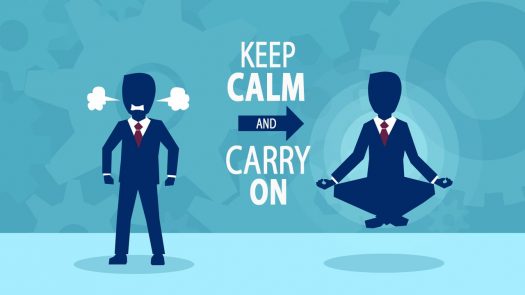Written by: Christopher Plein, Ph.D., West Virginia University, and OneOp Caregiving Concentration.
Throughout these unique times, the MFLN continues to provide webinars and other programs to help build a learning network among those working with military families. Well-known challenges, long-familiar to those who help others, take on new dimensions as we meet today’s challenges.
I was reminded of this recently through a webinar hosted by the OneOp Military Caregiving concentration and delivered by Dr. Jeffrey Hanna of the West Virginia University School of Social Work. Dr. Hanna provided insights on how to work with clients experiencing emotions that may make for difficult interactions. His presentation homed-in on key concepts, such as the difference between the empathy and sympathy; understanding the importance of listening and allowing for silence in interpersonal connections; and the dynamics of client “rage” that can create disruption, disturbance, and distraction in trying to work through problems and solutions.
Dr. Hanna’s webinar was attended by over 300 participants from across the country and beyond, and offered an opportunity to learn how to “keep calm and carry on” when presented with challenges. As a follow up to the webinar, I asked Jeff to provide some additional perspective on how to defuse stressful interactions that emerge from rage.
One of the things that Dr. Hanna stressed is that individuals who come to us for assistance or help may exhibit “rage” that results in “either emotionally exploding through words or actions or imploding through silence and sarcasm.” He notes that, “Rage is not a feeling, rather an expression of many feelings. Typically rage comes from when a person has not processed the emotions from old anger, sadness, fear, and/or grief.”
How to Respond in Difficult Situations
Dealing with rage and carrying on with goals to help others calls for professionals to be self-aware of the situation and to act accordingly. As Dr. Hanna notes, “The skills to remember when this response comes towards us are to breathe, let the person talk, remember it is not about me, mimic the tone and actions we want the other to behave in, and finally giving a person a choice of how to proceed.”
It is also important to remember that you are not alone when working with clients. While respecting confidentiality and professional boundaries, there is a need to reflect and put difficult experiences in perspective. As Dr. Hanna noted, “There are times that we feel overwhelmed or annoyed by the behavior, and if these feelings stay with us, then we start to fill our own rage bomb. We need to talk to someone about these feelings, or they will start to become reflective in our work with others through burn out, bitterness, and/or feelings of indifference towards others.”
In these times of remote work and service, Dr. Hanna offered some practical advice on how to communicate via email and virtually. For example, email communications require an appreciation for the tone that is set through the choice of words. Virtual meetings may need to take into account the client’s surroundings and whether they feel secure and comfortable in seeking advice and resources.
In his webinar, Jeff emphasized that those working in support roles for military families are often the first to respond. Regardless of one’s role and responsibility, we may all encounter difficult interactions. The perspective and advice offered by Dr. Hanna should prove helpful in charting the way forward in our work with others. Dr. Hanna’s webinar, “Keep Calm and Carry On: Working with Difficult Clients” can be found on our OneOp Military Caregiving webpage and offers continuing education credit.













